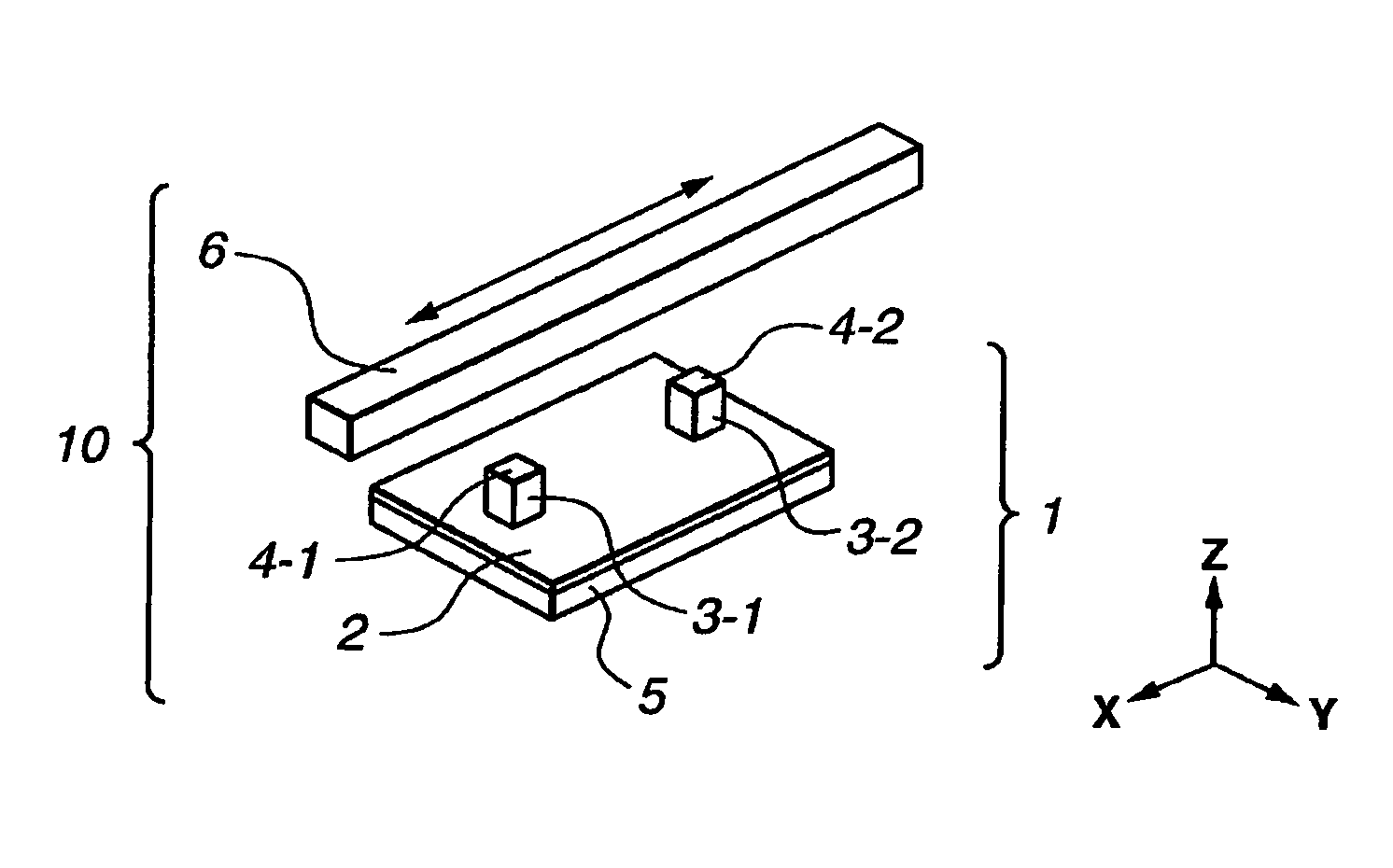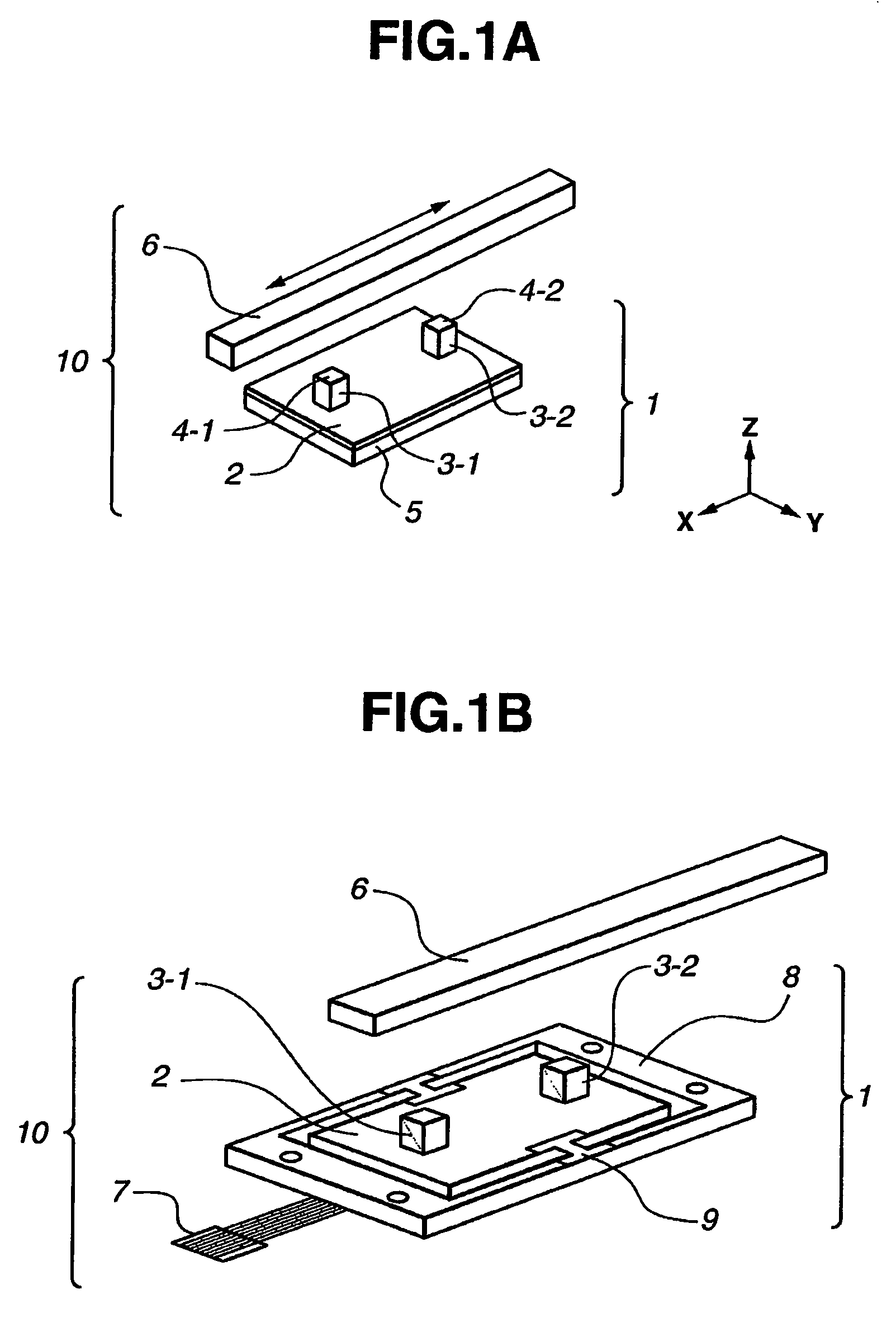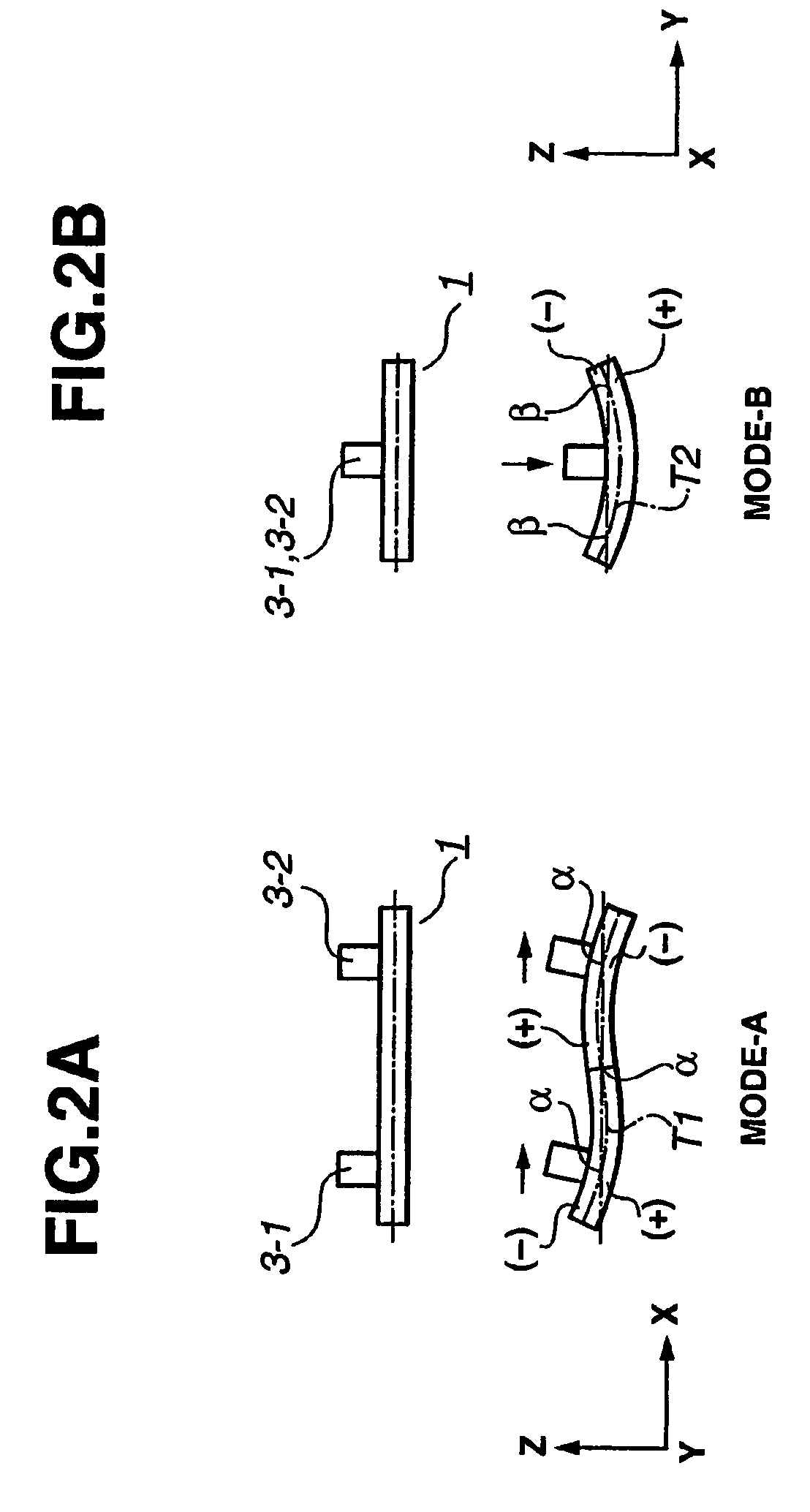Vibration-type driving device, control apparatus for controlling the driving of the vibration-type driving device, and electronic equipment having the vibration-type driving device and the control apparatus
a technology of driving device and control apparatus, which is applied in the direction of piezoelectric/electrostrictive/magnetostrictive device, piezoelectric/electrostrictive/magnetostrictive device, piezoelectric/electrostrictive/magnetostriction machine, etc., can solve the problem of describing conventional vibration-type driving device, difficult to reduce the size of plate-like vibration element, and individual driving device driving performance fluctuation, etc. problem
- Summary
- Abstract
- Description
- Claims
- Application Information
AI Technical Summary
Benefits of technology
Problems solved by technology
Method used
Image
Examples
first embodiment
(First Embodiment)
[0057]FIGS. 1A and 1B are perspective views showing the appearance of a linear-type ultrasonic actuator 10 serving as a vibration-type driving device according to a first embodiment of the invention.
[0058]In FIG. 1A, the linear-type ultrasonic actuator 10 is composed of a vibration element 1 and a linear slider 6.
[0059]The vibration element 1 is composed of a multi-layer piezoelectric element 5 formed into a rectangular thin-plate shape, and a driving plate 2 made of an elastic body and bonded integrally to one end surface of the multi-layer piezoelectric element 5. The multi-layer piezoelectric element 5 also has a plurality of thin-plate-like piezoelectric element films each having electrodes on the front surface thereof. The multi-layer piezoelectric element 5 is an electro-mechanical energy conversion element in which mechanical displacement occurs in response to an electrical signal being supplied thereto. Preferably, the size of the multi-layer piezoelectric ...
second embodiment
(Second Embodiment)
[0105]FIG. 8 is a perspective view showing the appearance of a linear-type ultrasonic actuator 10 serving as a vibration-type driving device according to a second embodiment of the invention.
[0106]In FIG. 8, the vibration element 1 is composed of a multi-layer piezoelectric element 5 formed into a rectangular thin-plate shape, and two protruding portions 3-1 and 3-2 formed integrally with the multi-layer piezoelectric element 5 on the front surface thereof. On the tip surfaces of the protruding portions 3-1 and 3-2, there are formed contact portions 4-1 and 4-2, which are kept in contact with a linear slider 6 serving as a driven element.
[0107]Thus, while, in the first embodiment, the multi-layer piezoelectric element 5, the driving plate 2 and the protruding portions 3-1 and 3-2 constitute the vibration element 1, the multi-layer piezoelectric element 5 and the protruding portions 3-1 and 3-2 constitute the vibration element 1 in the second embodiment.
[0108]The p...
third embodiment
(Third Embodiment)
[0122]FIG. 11 shows the structural arrangement of a piezoelectric element 5 in a linear-type ultrasonic actuator serving as a vibration-type driving device according to a third embodiment of the invention. In the third embodiment, the driving plate 2, the protruding portions 3-1 and 3-2 and the ultrasonic actuator 10 are the same in construction as those described in the first embodiment (FIG. 1A), but the construction of a piezoelectric element in the ultrasonic actuator 10 is different from that described in the first embodiment.
[0123]As shown in FIG. 11, on one end surface of the piezoelectric element 5, there are formed five electrode films P1 to P5, which are arranged to be approximately symmetric both in the X direction and the Y direction. The electrode films P1 and P2 as well as the electrode films P3 and P4 are arranged to be approximately symmetric with respect to the X-axis passing through the center of the piezoelectric element 5.
[0124]Also, the electro...
PUM
 Login to View More
Login to View More Abstract
Description
Claims
Application Information
 Login to View More
Login to View More - R&D
- Intellectual Property
- Life Sciences
- Materials
- Tech Scout
- Unparalleled Data Quality
- Higher Quality Content
- 60% Fewer Hallucinations
Browse by: Latest US Patents, China's latest patents, Technical Efficacy Thesaurus, Application Domain, Technology Topic, Popular Technical Reports.
© 2025 PatSnap. All rights reserved.Legal|Privacy policy|Modern Slavery Act Transparency Statement|Sitemap|About US| Contact US: help@patsnap.com



